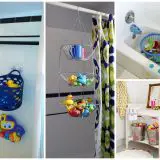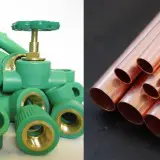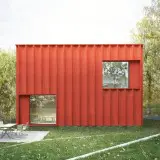Practical Tips For Choosing A Vacuum Cleaner
The vacuum cleaner is, whether we like it or not, a central element of your micro-universe we live in. if, many years ago, we didn’t bother to buy selectively, today’s rich market and our increased attention to cleaning more efficiently so we can save time make us look and think twice before buying such a device. So here is what to take into account when choosing a vacuum cleaner.
First of all you need to decide whether you need a bagless or uses a dustbag. Dustbags are usually made of paper and textile, namely single use and, respectively, multiple use. Bagless vacuums do an excellent job of cleaning. But allergy and asthma sufferers need to consider all the dust they will be exposed to when maintaining the bagless vacuum. Some modern devices compress the dust into a compact form so dust won’t spread when you clean the dust container. The size of the dustbag or cup is also important, especially when you have a large surface to clean.
Most quality vacuum cleaners will do an adequate job of filtering the air the leaves the machine. But if anyone in your home suffers from allergies, asthma or any other health condition that is impacted by fine particles or allergens in the indoor air, a high filtration or HEPA filtration vacuum cleaner is strongly recommended. HEPA stands for High Efficiency Particulate Air. A HEPA filter must remove 99.97% of all particles as small as 0.3 microns in size from the air that passes through it. This is the standard “best” filtration method for residential applications.
The wattage and the suction power are also important. Since 2014, all vacuum cleaners made or imported in the EU have to have motors of 1,600 watts or less, offering us a clue about the power use of the device. In terms of suction power, most of the nowadays vacuums range between 300 -450/500 W, with weaker products featuring a 200 to 300 W suction power.
Noise level is also important. The amount of noise a vacuum makes while operating is rated in decibels (dB). To give you some idea, a conversation at home is rated at 50dB, a garbage disposal at 80 dB and a motorcycle or lawnmower at 100 dB. Extremely quiet vacuum cleaners can operate at decibel levels in the mid-60s while cleaners in the 70-77 dB range are still relatively quiet compared to the yesteryear’s vacuum cleaners.
Among other criteria worthy of consideration are the size and the weight of the vacuum, the length of the cord so you can cover a larger surface without changing the plug and attachments, even if all quality vacuum cleaners come with a set of come with a set of accessory tools that cover most floor and above-floor vacuuming needs. For those living in small surface homes, upright vacuum cleaners are a perfect choice, easy to handle and store. Those with pets at home may go for a multifunction vacuum cleaner which has washing the carpets as one of the features.















